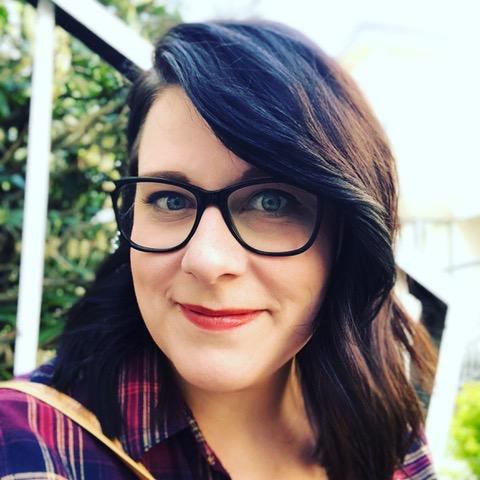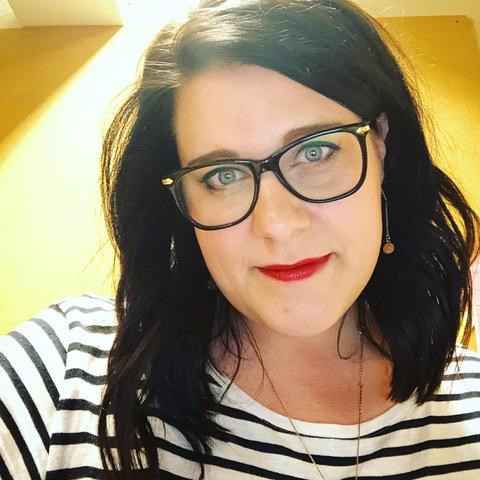Rachel Langer has been in pain every moment of every day since she was 14.
It’s not always the same type of pain, either. Langer identifies three separate strains of pain that rock and roll within her: the achy pain that’s been a near-constant companion for roughly half her life; the stabbing pain that rears itself at least once a day; and the flare-up pain, the intensity of which has sent her to the ER on numerous occasions.
“I live with some form [of pain], sometimes all forms, every day,” says Langer matter-of-factly.
The root cause is endometriosis: tissue that normally lines the inside of the uterus grows outside of it, forming lesions and gluing organs together.
Endometriosis affects one in 10 Canadian women, and there’s no cure.
But the Leo Award-winning, Vancouver-based screenwriter – whose growing list of credits includes This Life, Ghost Wars, and the highly anticipated series The Bletchley Circle: San Francisco and The Order – is leveraging her position within the film and television industry to draw attention to a disease that is largely misunderstood, misdiagnosed, and woefully underfunded.
Langer first opened up about her long health battle in a widely circulated essay entitled “3 Surgeries, Fiery Pain, Dismissive Docs: My Life With Endometriosis” that ran in Chatelaine and Medium. Her social media feeds document hospital visits and writing for television through searing pain, as well as selfies with a stuffed uterus toy she’s named “Rachel’s raging uterus.”
And last month, Langer partnered with filmmakers erin cumming and Sheona McDonald on Inside Out, a documentary pitch for Storyhive with the tagline “Rachel Langer didn't choose endometriosis, but she did choose to talk about it.”

Langer wasn’t always so eager to speak publicly about her endometriosis, working as she does in a segment of the film industry where women are underrepresented.
“I’d waited until I had enough gigs that I felt like people would still hire me regardless of their opinions on the matter,” says Langer. “I ended up speaking out because I felt like there was so much of my life that was being hidden away, which didn’t feel right.”
But by sharing her story, Langer has impacted more lives than just her own, as she learned when her 2017 essay went viral.
“I’ve heard from so many women who say, ‘I didn’t know that other people were going through this, and I felt so alone,’ which isn’t what I was going for but it’s a nice by-product,” she says.
Women with endometriosis often feel isolated because “the reproductive system is still widely associated with hysteria,” says Langer. “People just think, ‘Period cramps, that sucks, yours are just a little more bad,’ and I’m like, ‘No, this is every day, all the time, this is a hostile takeover of my lady parts with rage-y cells that cause massive amounts of pain.’”
Doctors don’t always know what to do with endometriosis patients, says Langer, who first felt the searing pain of endometriosis at 14 but had to wait 11 more years for an ovarian cyst to burst before doctors were able to diagnose her.
She’s been prescribed nerve medication. She’s been told to go on continuous birth control. She’s had two IUDs. “It’s been suggested multiple times that I get pregnant because it could help for nine months, even though infertility can increase sometimes by up to 50 per cent,” notes Langer. “They just want to fix something, because they’re results oriented, and they just want you to go away.”
After years of mostly misses from medical professionals, Langer has developed what she describes as a “pain partition” to cope with the unrelenting agony.
“My foot will shake. Anyone who knows me well will go, ‘Oh, you’re doing a little foot shake, are you okay?’ I’ll fidget or I’ll stand or I’ll lie down on the floor. I did a lot of laying on the floor at The Order, typing on the floor, writing on the floor.”
Langer – who is scheduled for a hysterectomy later this month, a procedure that she notes does not guarantee an end to her woes – is quick with a list of action items that she believes will dramatically improve the lives of patients with endometriosis: more funding for research, more training for triage (“They’re just not designed to work with chronic issues. They don’t consider that chronic becomes critical when there’s a flare-up”), and the big one: believe women when they tell you something’s wrong.
“I’ve read countless stories where women have gone to the emergency room, are sent home, and end up with a burst cyst or twisted ovary,” says Langer. “I have a lot of privilege that comes with being a cis white women walking into the emergency room. It’s much harder for women of colour or trans women dealing with this kind of thing. We need to open that up and just believe woman.”
Follow @RachLanger.


